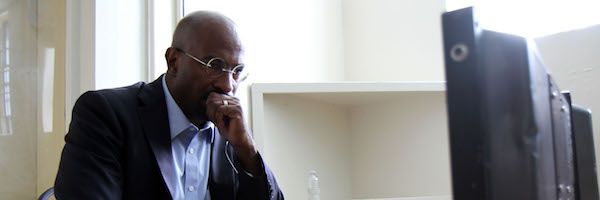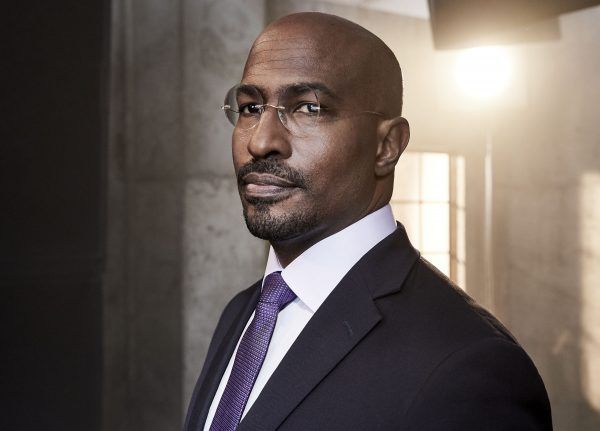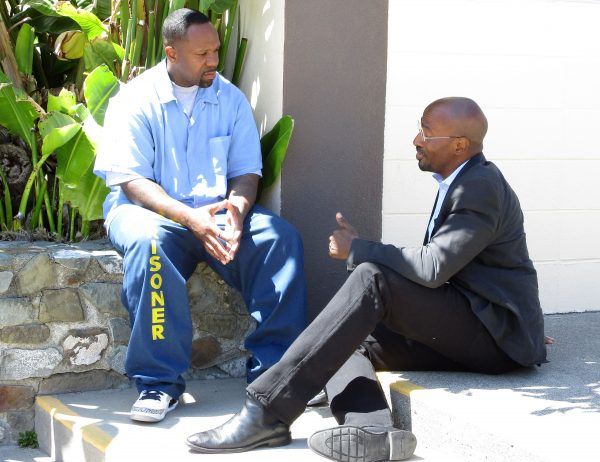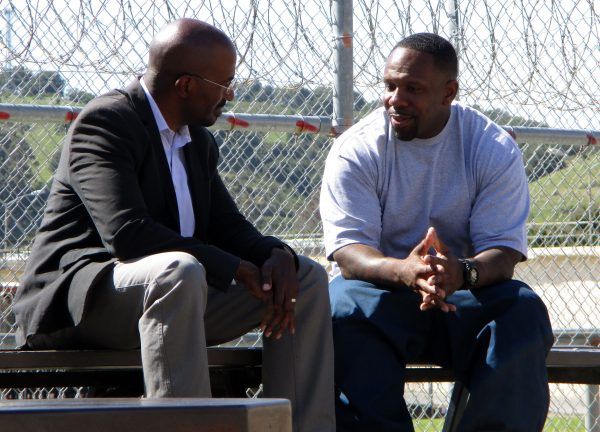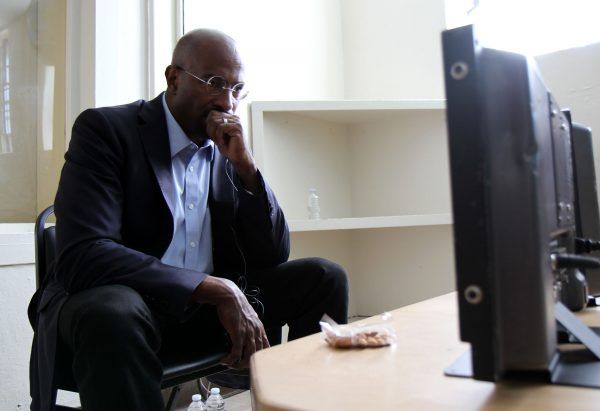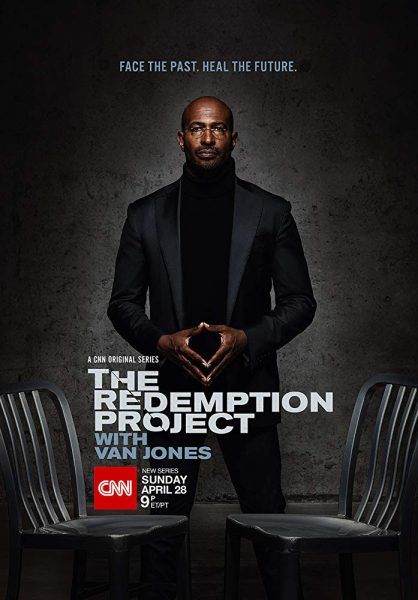At a time when empathy and compassion seem to be lacking and cancel culture runs rampant, news commentator and political activist Van Jones is on a mission to seek the truth in its purest form, with the CNN series The Redemption Project. As someone who has spent about 25 years working on criminal justice issues, his incredible access to the U.S. prison system allows him to take viewers into the room as offenders come face-to-face with those impacted by their violent crimes, as part of the restorative justice process.
During this 1-on-1 phone interview with Collider, show host Van Jones talked about how The Redemption Project came about, how deeply he was affected by the journeys in these eight episodes, why it’s hard not to get emotional himself, why it’s important to humanize both sides of each of these stories, the profound sense of humanity you feel from watching the conversations between survivors and offenders, his desire to do more episodes in the future, and why he’s proud to be a part of the CNN family.
Collider: This series is so very important, and it’s been so emotionally impactful to watch. How did this come about, and how did it evolve into what we see now?
VAN JONES: Well, I’ve spent about 25 years working on criminal justice issues, and I’ve been in multiple prisons and discovered that there are some real diamonds behind those walls, regardless of how people go into prison. There are some people who, frankly, despite the prison conditions, often do transform themselves, and become more wise, more strong and more generous, and they often want to make amends, but don’t know how, or are not allowed to. And I want those diamonds to have a chance to shine, so that was one motivation. The other motivation was that I’m just concerned that the culture is getting so anti-empathy and anti-compassion that we need to do something on television to try to stoke those fires of humanity and goodwill again. And then, lastly, I just happened to have a good friend, Jason Cohen, who did an Oscar-nominated documentary, called Facing Fear, where a former neo-Nazi reconciles with a victim of his violence. And so, we decided to do a series and take on some of these tough cases, where people want to make amends and find the people that they hurt, and film them speaking to each other, for the first time. That’s the whole show.
It seems like it took some time to follow these journeys. How long have you been working on this?
JONES: About two years. The first episode, the one that we did with Mariah [Lucas], whose mother had been killed, we did totally rogue. We had no permission from anybody, and I’m not even sure we had insurance. We just went in and shot it. You can see that one is very different from the others because there’s not even a facilitator between the two of them. They’re sitting almost knee to knee, which we later learned is not the smartest way to do it. And I’ve personally just been transformed, as a person. I’m not naturally the most forgiving person in the world. I can hold a grudge, for a long time. I’ve got bad memories from third grade playground incidents, where I so wanna find those people and tell them a thing or two. It’s very inspiring. People say, “Oh, this content is so dark,” before they see it, but it goes from heartbreak to hope, and that’s really how life is. It’s not reality television. We aren’t sitting here telling them, “Say that again. Say it louder. Show more anger.” The series is an authentic expression from people who are trying to get out of hell, frankly.
So far, in three episodes, I’ve pretty much seen you cry in each one. Do you ever make it trough an episode without tearing up, or is that just inevitable, when you’re listening to these stories?
JONES: I don’t know. You’ve seen some of the more emotionally impactful ones. It’s hard. We spend so much time with them before they meet each other, that by the time they’re actually about to enter the room, I’m really pulling for both of them to do well, and I think the audience is also feeling that way. I’m in it, and it’s funny because I’m not always aware of the cameras. I’m watching how this thing is happening and, of course, I know that the people are there filming it, but at a certain point, you’re watching these two people that you’ve really gotten close to, in the way that you can when you’re asking people these questions about their whole life story and they’re explaining the real nuts and bolts details of a very, very horrific set of circumstances. You feel very close to those people, so it’s hard not to get emotional.
A series like this could of easily just focused on the victims and survivors, but there is real care taken to explore the story of the perpetrators, and you humanize them in a way that I can’t remember ever seeing before. Was that something that was always important to you?
JONES: Yeah, it was very important. Our goal is 50/50, and we come very close to that, in every episode. It’s about 50% on each sides. The reason I think that’s so important is that we really are trying to hack and transform this whole true crime craze. The key to the true crime genre is the whodunit? Who actually committed this crime, and should someone be exonerated? Well, we already know whodunit, in every one of these episodes, so this is not true crime. It’s about the truth, long after the crime. The truth is often that people still haven’t healed, 10 years or 20 years later. People still have questions and pain, and the truth is often that the person who did the horrible act has grown and learned, and is worthy of some real consideration. As long as people who watch feel that they have some experience of the humanity on both sides, we’ve done our job. People keep saying, “I don’t know if I could forgive,” and I’m like, “I don’t know if I could forgive, either!” In fact, I’m pretty sure I couldn’t, but that’s not the point. People also say, “I’m not sure that this particular person deserves to be paroled, or to even have the opportunity to be freed or embraced.” And I say, “Listen, the mere fact that you’re wrestling with this, is all that we’re asking.”
We just want people to really deal with the humanity involved in these sensationalized incidents, years later, and also break down the other side. There are people who are very strong criminal justice reform advocates, like myself, who often are taking the side of the person behind bars. I love it when my advocate friends are challenged by really having to deal with what the victims go through. There’s no agenda here, except to just deal with this humanity. It’s so funny because, even though the stakes are a lot higher in our show, the feelings are universal. Everyone has done something that they regret profoundly and don’t know how to apologize and make up for, and everybody has had something done to them that they have a hard time getting past. And so, even though the stakes are a lot higher in our show, because of the underlying incidents, that struggle, on both sides, is universal, and that’s why the show works. That’s why, when you look on Twitter, the comments are 99.9% positive, which I’ve never seen on Twitter. I call it Hater because it’s just so negative, but for the past few weeks, it’s been just a chorus, online, of praise for this show.
When I started seeing it advertised, I was curious about the show, but I definitely wasn’t prepared for the emotional roller-coaster that it puts you on. Just feeling that sense of humanity in the room, watching these people, is such a tremendous thing.
JONES: Yeah. You know, I appreciate that. I’m the host and I have my say, but I’m not a cinematographer and I’m not the director, so in some ways, I get to experience it. There’s no make-up, no lighting and no do-overs, and nobody’s ever seen a show like this before. There’s no acting. The expressions on people’s faces, I do not think the best actors on Broadway or in Hollywood could match because it is so real. They’ve forgotten about the cameras, just like I have. By the time the one person is looking at the other person walking into the room, we don’t have the literacy to describe what is going on in that room because, frankly, it doesn’t happen that often, filmed or not filmed. We have a lot more colorful language for being mad than for moving towards healing. They are just literally indescribable facial expressions and things that I’ve never seen happening, in the quiet of the show. It’s not a conversation, so much as what’s happening on their faces and in their bodies, even when nothing is being said, that is so arresting.
It’s just the purest form of truth, and you recognize that when you see it.
JONES: My fear is if we get a second season, maybe somebody will start thinking, “Here’s what I’m supposed to do, and here’s how I’m supposed to do it.” The great thing was that, in the first eight episodes, nobody participating had any idea what it was going to be. There’s a purity and an innocence, through the whole thing, that I hope we can maintain. It’s a radical experiment in trying to capture something honest on film. Sometimes the inside of maximum security prisons are crazy places and I hope that people will give it a shot. People say, “That’s just too triggering and difficult.” You have to set up the heartbreaks, so the first part of the show can be a little bit challenging, but I haven’t heard a single person, who’s watched to the end, that’s said, “Gee, I wasted my time.” Everybody who watches it is profoundly grateful, and I hope that more people will.
You’ve previously talked about how you used to watch CNN with your father, and you’ve gone from that, to being a voice on the network, to now having more than one of your own shows airing there. What does that sort of personal and professional accomplishment feel like?
JONES: Well, I don’t quite feel deserving or worthy, frankly, because CNN still has, as far as I’m concerned, the best talent in front of and behind the camera in the industry, with really no peer. Just to be a part of the CNN family, for me, is a big deal. When I walk into the building and put my little ID up against the thing for the door to open, I still just feel proud to be a part of CNN, at all, and the fact that they’ve let me do weird things, like The Messy Truth specials. When everybody was still so upset about Trump’s victory, they let me go into Trump country, as a well-known liberal, and sit down in people’s homes and talk to people and really try to build some bridges of understanding. There’s The Van Jones Show, which we call Sesame Street for grown people because there’s no cautious stuff. It’s all leading up to taking to somebody you agree or disagree with, and really trying to get to the human side of it. And The Redemption Project is so edgy and so beyond anything that’s ever been on television. After we went rogue and did our crazy little pilot, Amy Entelis at CNN said, “You know what? Go ahead and see if you can do this again.” She wasn’t sure that you could it more than once because it had never been done before, and when she gave us the go ahead, we frankly didn’t have a single other pairing on deck. We just had this one crazy experiment that we had done, and it had really worked out, so she said, “Look, if you can find more, get more because it’s important.” She didn’t say, “I think it’s gonna be a ratings’ dynamo.” She said, “I think it’s important, what you’re doing.” Who the hell says that?! So, I don’t really have words for it. I’m really proud and I feel really lucky. I just turned 50 years old last year, and I was in my late 40s before I got any real breaks in television. I’m just proud to have the opportunities to do things that cut against the present nastiness in the culture. I’m a very strong liberal and progressive, but I don’t want to become what I’m fighting. I don’t want to seed what I’m fighting. I wanna be strong in my principles and my beliefs, but I also don’t want to let go of the humanity of Republicans or the people who I disagree with. It’s a daily struggle, and for whatever reason, CNN is letting me work through that on their time and on their dime, and I appreciate that.
I, for one, am so glad that The Redemption Project has worked out because it is an important show and it’s just so profoundly moving. I have such respect for you and the work you do, and how you always seem very fair in the way that you handle what you present and explore.
JONES: We’ve got some upcoming episodes that are so different from the ones we’ve already done, and they’re all very unique. We’ve got some that are gonna shock people, in terms of the incidents that we’re bringing one step closer to healing. My hope is that, if you watch all eight episodes, the loyal viewers are gonna have a really well-rounded understanding of what’s possible among people.
The Redemption Project with Van Jones airs on Sunday nights on CNN.

